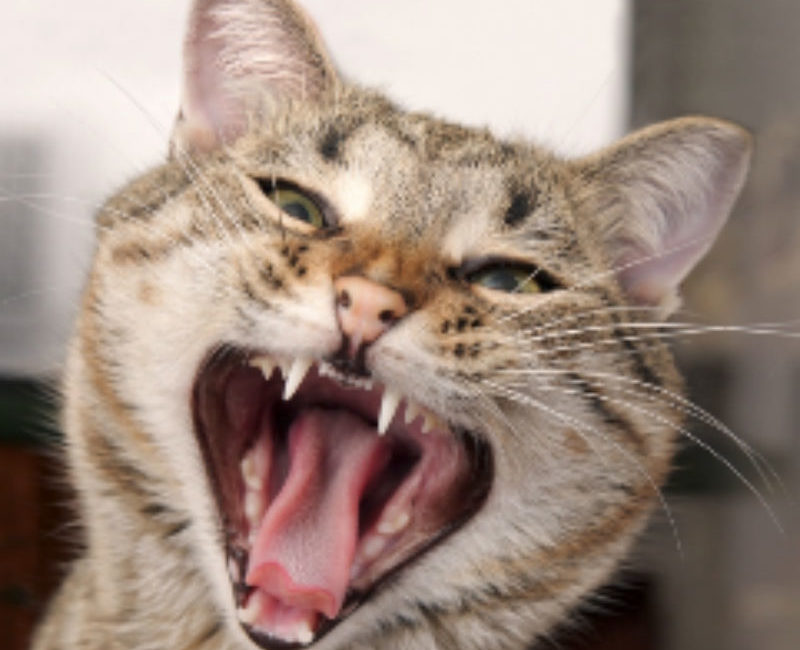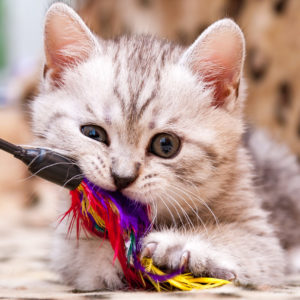There is a trend going around that your pet’s teeth can be cleaned with her awake. Let’s simplify this – do you like going to the dentist?
Of course, we all do go, but we go knowing that we will tolerate it due to the greater good. Your dog (and most certainly cat) does not understand this rationalization.
Holistic Approach – what exactly does this mean? Defined, holistic means a medical treatment that is characterized by the treatment of the whole person, taking into account mental and social factors, rather than just the physical symptoms of a disease. Cleaning a dog’s teeth while awake does NOT take into consideration the stress and behavioural conditions it will create for your pet and it does not help with the disease condition that may be present as the teeth are not being cleaned under the gumline so the condition and potential for health problems in your pet can still be hidden and not cured. This leaves your pet susceptible to bacterial infections that can travel to the heart, liver and kidneys. Dental disease can also stress the immune system, making your dog more vulnerable to other potential infections.
Many “Teeth Cleaning Practitioners” that you will find claim that eliminating anesthetic drugs allows them to work with high-risk breeds, animals with medical conditions and elderly pets. These patients are often dogs that cannot withstand the stress this will create as they may already have difficulty breathing on their own – such as a pug, bulldog or boxer (brachycephalic breeds). Senior patients can pass out due to lack of oxygen during a stressful event and pets prone to seizures can be driven into a fit from stress.
My next concern is “What is the formal education required to carry out this procedure on your pet?” Do they have any education or have they just been shown by a person who was shown by another person, and so on? In a patient that is awake, we can not clean below the gum-line, in between the teeth or on the tongue side of the mouth where you can not see. Most certainly a complete oral exam is not possible both due to a knowledge deficit and simply not being able to visualize or take dental radiographs.
This leaves you, the customer, with a false sense of security that your pet is healthy and pain-free. Often the word “natural” is used when promoting these procedures. Natural is defined as existing in or caused by nature; not made or caused by humankind. How is that word even appropriate? But it tugs at our heartstrings making us easily manipulated into feeling like we are doing something that is “good.” Natural is chewing NOT scraping the teeth with a sharp hand scalar.
The Procedure – Your pet can be restrained in multiple different ways but often on its back. The dog will not just hold its mouth open; there needs to be force placed here to work in your pet’s open mouth. A sharp hand scaler is used to scrape tartar off the teeth using a reasonable degree of force. If your pet moves, this sharp object will painfully pierce your dog’s gums. Do they polish afterwards? If the teeth are not polished, then groves are being left in the enamel thus allowing the plaque to accumulate even quicker on the teeth.
Let’s assume your dog will just lay there and tolerate this procedure. The teeth are only being cleaned where you can see, not below the gum-line where it is creating damage to the periodontal attachments, creating infection and oral pain for your pet.
Some unfortunate behavioural results are that this procedure can make your dog or cat head-shy which makes instituting an effective home-care program much more difficult and therefore putting you back in the situation where professional care is needed even sooner.
We at Hillcrest Animal Hospital realize that putting your pet under anesthetic is a concern for all pet owners, however, please remember we are trained professionals with only your pet’s best interests in mind. The entire Veterinary Community agrees that this “Anesthetic Free Dental Care” is not ideal and can only do more harm than good.
For more information on Veterinary Dentistry and how we do our best to make it as safe as possible for your pet please see other blogs on this site such as Smelly Breath to Fresh Smiles and Why Does A Pet’s Teeth Cleaning Cost So Much? or call us at 613-394- 4811 we are happy to answer any of your questions or concerns.
Written by Darlene Cannon, RVT




